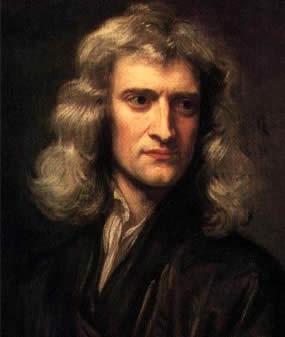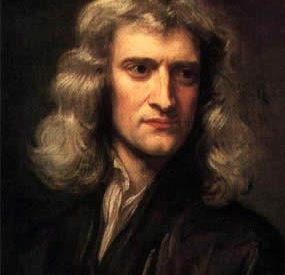Isaac Newton was born on Christmas Day in 1642, just three months after the death of his father, Newton?s father was a prosperous farmer. He was born prematurely. His mother Hannah reportedly said that he could have fit inside a quart mug (? 1.1 litres). When Newton was three, his mother remarried and went to live with her new husband, Rev. Smith, leaving her son in the care of his maternal grandmother. She and Rev. Smith had three children. The young Isaac disliked his stepfather and maintained some enmity towards his mother for marrying him.

When Rev. Smith died in 1653, Isaac was ten years old and he returned to his mother?s household. As his father had been a farmer, Hannah decided that Isaac should also be a farmer, and thus took him away from his school studies. He hated farming. He spent a year away from school on the farm, at quite a critical time in his education. Later in his life, at the age of nineteen, Isaac grew very resentful of how his mother had left him when he was young.
Newton never married. Although it is impossible to verify, it is commonly believed that he died a virgin.French writer and philosopher Voltaire, who was in London at the time of Newton?s funeral, claimed to have verified the fact, writing that ?I have had that confirmed by the doctor and the surgeon who were with him when he died? (allegedly Newton stated on his deathbed that he was a virgin).In 1733, Voltaire publicly stated that Newton ?had neither passion nor weakness; he never went near any woman?.
Newton?s childhood experiences such as death of his father before his birth, his mothers re-marriage to a man he did not like, etc. might had been a reason. Childhood experiences can spoil a person?s outlook on further adult relationships. But I like to believe that Isaac Newton was married to Science and to his career as a Scientist. He spent hours in his Lab and for research.
However Isaac Newton become one of the most influential scientists of all time and is regarded as a key figure in the scientific revolution.


